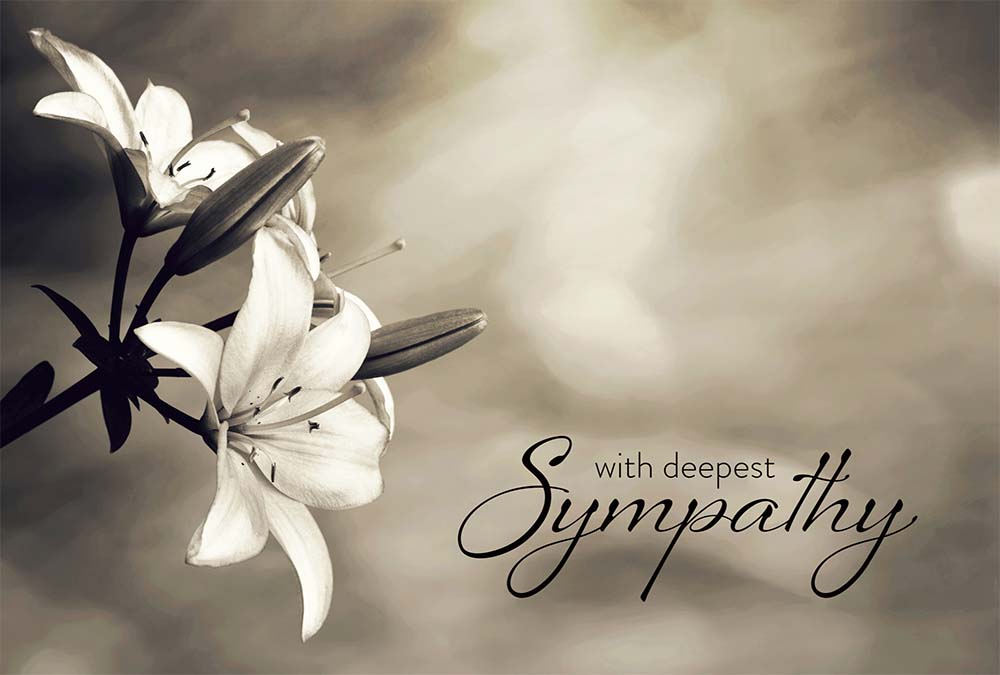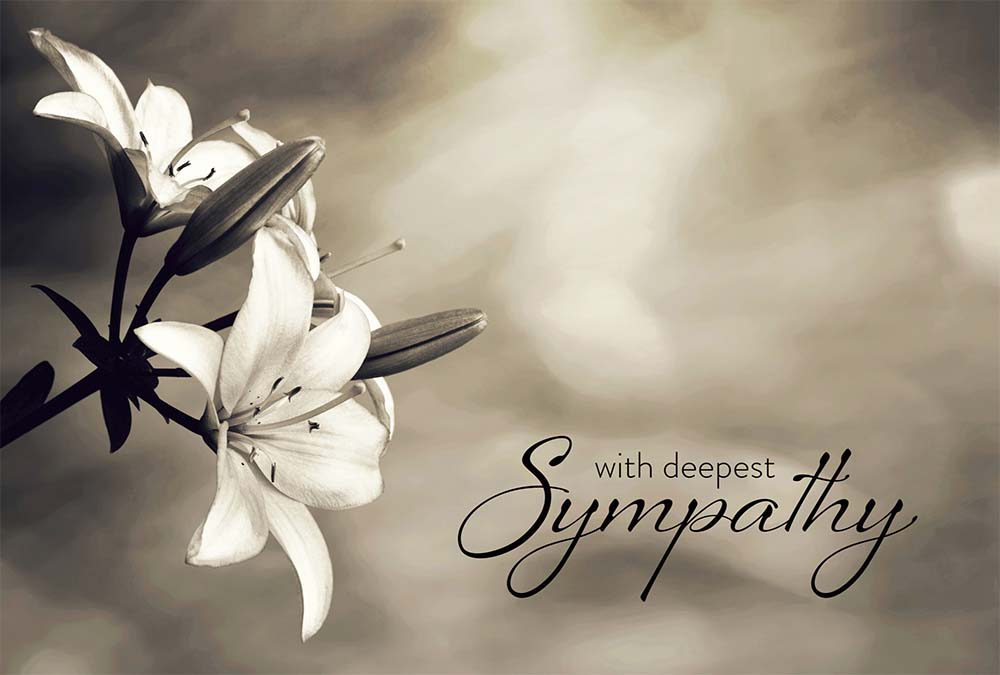Resources
The loss of a loved one is one of the most difficult situations to face in life. This can be especially trying if you are in charge of making the funeral arrangements. Our family here at FuneralHomes.com would like to share with your family some points from experienced funeral directors that will help you in such a troubling time.

How to Talk to Your Parents About Estate Planning
- February 24, 2022
- Planning
If there is one thing certain about life, it is that it ends, and many times unexpectedly. Anticipating the death of parents, those who raised you and prepared you for this life can be very emotionally challenging. It is difficult to confront the fact that one day your parents’ time will come. For this reason, it is common for both parents and their children to avoid discussing estate planning. But discussing estate planning is important to ensure that the estate will be managed appropriately and the right heirs will have rights to the estate after one’s parents are gone. This topic’s conversation isn’t an easy one by any means, but one of great importance.
Many people fail to have this conversation with their loved ones for various reasons due to lack of knowledge, avoidance, or worrying about family members’ reactions. But the cost of avoiding it can be monumental and negatively affect the family. The children may have unending feuds amongst themselves especially if they do not know what their parents’ wishes were. After all, It is quite likely that the children, after their parents’ deaths, will make decisions from those their parents would have made.
Therefore, it is vital to have “the talk” with your parents as adults before they are gone. Here are a few tips on how to approach this topic.

How To Find An Obituary For A Specific Person
- February 11, 2022
- Celebrations of Life
What is an Obituary?
An obituary is a written notice of someone’s death. It typically offers details about the decedent’s life, life milestones, family and familial relationships, etc. as well as provides information about their upcoming funeral services.
While searching for an obituary may have been a more challenging and complicated process in the past, finding an obituary of a specific person is not nearly as complicated today. With the help of innovative technology and today’s rapid communication, the process of searching for a loved one’s obituary or even that of an old childhood friend is now quick, easy, and convenient.

15 Condolence Messages for Loss of Wife
- February 2, 2022
- Celebrations of Life
He who finds a good wife finds a treasure, and not even all of the money in the world, the biggest fortune, nor any amount of luxury or friendships can replace her absence. Since the beginning of times and throughout every civilization that has existed and prevailed, wives have played a significant role and were always valued for their abilities and attributes. An honorable wife has always symbolized a happy and joyful family, making them prime elements of any functioning society. Moreover, beyond all of their attributes and abilities, wives are life partners and lovers whose absence is capable of breaking even the most hardened heart.
Losing a wife never comes without pain and anguish, and immense emptiness in a family, regardless of the size. When someone loses a wife, even the slightest memory resembles the pain and agony that comes from a stab in the heart. You can expect someone who has recently lost a spouse to be more defensive, sensitive to certain topics, and even in denial. For reasons like these and many more, we find most of our readers overwhelmed and clueless on how to approach someone who has recently lost a spouse and offer their condolences. This is exactly why we have put together this sympathy guide to serve as a reference and hopefully offer some attestation of the delicacy and fragility of the manner.
Regardless of your relationship with the bereaved, below you can find 15 condolence message examples to help you comfort a loved that is going through the loss of a wife.

15 Condolence Messages for Loss of Husband
- February 2, 2022
- Celebrations of Life
The loss of a husband is a heart-rending event that can without a doubt leave the bereaved in a complete state of confusion, hopelessness, desolation, and more than anything else loneliness. For many, as the years pass and children take their own path, elderly parents pass away, and old friends move farther and farther away, the one true companionship that remains is their spouse’s. Nevertheless, beyond the sorrow of losing a lifelong companion, add to it losing a caregiver, the father of your children, your best friend, and most importantly the person you once promised to share your life with.
When someone loses a spouse you can expect them to feel guilt, anger, frustration, or even find themselves shocked and paralyzed, this is especially if the couple was young and newly married. For reasons like this and many more, it goes without question that our condolences should be addressed delicately and cautiously, being heedful of the bereaved’s emotional status and any particular words or message that could trigger an undesirable and hurtful response.
The truth is there is no right or wrong when it comes to grieving, and everyone reacts in a different and unique way. This is a paramount concept and conviction to remain wary of when taking the time to write or say a condolence message. Knowing sympathy messages are not a light manner or simple to say, but more of a task none of us enjoy, we have put together this guide to help you offer your sympathy and condolences to someone who is going through the loss of a husband.

15 Condolence Messages for The Loss of Sister
- January 21, 2022
- Celebrations of Life
The death of one’s sister is often one of the most unexpected and ultimately shocking deaths any one of us can experience. From a young age, we unconsciously prepare ourselves to one day find ourselves saying our farewells to our parents. On the other hand, most of us don’t consider the idea of one day having to bury one’s sister or having to say a final goodbye, especially if she died at a young age. Regardless of the type of relationship one has with their siblings, losing one of them never goes without bringing some level of distress and agony. For many, a sister is their best friend, caregiver, roommate, or biggest support system. Never underestimate the pain and suffering that comes with losing a sibling, and in this case, a sister.
With this in mind, if your relationship with the person whose sister has passed away is such that you feel you should attend the burial or memorial services, then without any hesitation or doubts please consider attending. However, in the case you can’t attend, a heartfelt condolence message can go a long way for someone in need of support and going through a transition like this. Keep in mind the sole motive of a condolences message, which is to remind the bereaved they’re accompanied in their pain and remain in your thoughts.
Below are 15 condolence message examples to say to someone who has lost their sister:

15 Condolence Messages for Loss of Father
- January 20, 2022
- Celebrations of Life
Expressing one’s condolences doesn’t have to be hard. A thoughtful message or heartfelt words can be of vast comfort and support for those who mourn the loss of a loved one. However, even if there is no need to complicate oneself, we can’t deny that what we say to someone who has lost a dear one is indeed a very sensitive and delicate manner. This post, in particular, is centered around what to say in relation to the loss of a father. The loss of a parent is one of the most difficult and wounding deaths anyone can experience. Losing a father can, without a doubt, leave someone completely devastated and in a very fragile state of mind and spirit. Fathers are often little girls’ first loves and act as guardians and protectors. For reasons like this and many more, it can be rather difficult to put together the right words that can truly express our sorrow and distress about the loss of a father.
Fortunately, we can count on the fact that well-intentioned and heartfelt messages will never fail to bring comfort and are unlikely to ever hurt those we love. With this in mind, here are 15 condolences messages written from a perspective of love and devotion for those we cherish, and a willingness to help others offer some degree of comfort and support for their grieving loved ones. Even if it is with something as little as warming their heart or getting a slight smile with a tender condolence message.
Below are 15 condolences messages to consider saying when it comes to the death of a father:

15 Condolence Messages for Loss of Dog
- January 11, 2022
- Celebrations of Life
Losing a beloved pet is never an easy process or something any of us can prepare for. Finding the right words to comfort and support a loved one who is going through this type of transition is often a delicate and highly sensitive manner. Beyond all of our intentions and willingness to help them feel better, there are many times in which our message can cause further discomfort or be misinterpreted. When confronted with the news that a family member or friend’s pet has passed away, we need to be able to put ourselves in their shoes and not prompt them to rush their grieving process.
The truth is, pets often become part of the family, and their loss can be just as painful as losing a human loved one. With this in mind, below you can find 15 condolence message examples to let a loved one know whose dog has recently passed that you’re thinking of them and are sending your love and empathy to them during this time.
15 Condolence Message Examples
- I am very sorry for your loss. [Pet’s name] was very loved.
- [Pet’s name] we’ll be greatly missed
- Wishing you all of the support and comfort during this transition.
- I understand your pain and want you to know I’m here for you and wish to help with anything you might need.
- Losing a member of the family is never easy. I’m thinking of you and sending my thoughts and prayers.
- I know it’ll take time for the pain to ease. Please know that I’m here whenever you need someone to talk to.
- We’ll never forget about [Pet’s name. [He/she was a loyal companion and cheerful soul.
- [Pet’s name] might no longer be here with us, but at least we have the memories to hold on to.
- Such a beloved and loyal companion like [Pet’s name] will always be remembered and stay alive in our thoughts and hearts.
- My most sincere condolences as you go through this period and transition. [Pet’s name] was a loved member of the family and his/her departure has without a doubt left a dent in everyone’s hearts.
- I know it’s not easy losing a beloved pet. Please know you’re not alone and we accompany you in your loss.
- There are no amount of words that could take away the pain you’re currently experiencing, but please know you remain in our thoughts and prayers.
- We like to believe dogs never die and will always take care of us no matter where they’re. Sending you all of our love and support.
- The unconditional love of a beloved pet is hard to find. We’re very sorry for your loss.
Final Thoughts
When it comes to the loss of a pet, we can always send a sympathy card, email, or flowers with a compassionate message to remind those who are grieving that they’re not alone and remain in our thoughts and prayers. As you write or get ready to express your condolences toward someone who is mourning the loss of a pet, try to refrain from comments like “You can get a new one soon” or “Pets come and go”.

15 Condolence Messages for Loss of Mother
- January 11, 2022
- Celebrations of Life
The death of one’s mother is one of the most heart-rending events to encounter in life. Regardless of the closeness of one’s relationship with their mother and the ages of the deceased and the relative, such an occurrence can leave the bereaved in agony and despair. Blood relationships are always special, but the relationship with a mother is even more profound. It is not only defined by love, care, and concern but also unconditional sacrifice in bringing one into this world and then fostering their growth. Sending condolences on such an occasion is a sensitive task as one needs to tread the thin line between not further hurting their feelings but also presenting sorrow for the great loss that has occurred.
If your relationship with the person whose mother has passed away is such that you feel you should attend the burial or memorial services, then consider attending. However, sending a heartfelt sympathy message, or saying condolences over a phone call can still be a good idea as it helps you express your love and empathy to the bereaved and that you are thinking of them in a difficult time like this.
Even if your relationship with the deceased’s relative is of a professional capacity, it is still a good idea to make sure that your behavior isn’t too formal and instead help in creating a supportive environment for them with the right, heartfelt messages.

A Guide to an Atheist Funeral
- January 6, 2022
- Celebrations of Life
For many, a funeral service is a big part of their religious beliefs and traditions and serves as an occasion to make remembrance of the hope and faith they might hold. It is very common for funeral services to encompass generational traditions and rituals that honor the faith of the deceased. It’s not uncommon for burial ceremonies to be centered around hope for a better life after this one is over and the spiritual journey that awaits the one who has passed. For those that hold no beliefs in an afterlife, a funeral service entails something different.
If you have been recently invited to attend a secular funeral, we encourage you to go over this guide to help you understand a little more about nontraditional funeral services and what to expect as a guest. Continue reading to become familiarized with secular funeral customs and traditions as you learn about a different approach to funeral rites and final goodbyes.
Atheist Funeral Traditions
Atheists are known for their disbelief of the afterlife or a higher being. For this main reason, it’s very unlikely you’ll come across religious hymns or prayers, or even a priest or pastor when attending an atheist burial. For them, funeral services are more focused on the life of the deceased rather than what awaits him or her after. Secular funerals take heed on remembering the life of the deceased, the time spent together, and what he or she accomplished.

A Guide to Buddhist Funeral Customs and Traditions
- December 16, 2021
- Celebrations of Life
Buddhist funerals are unique in many aspects. They vary not only from family to family and different schools of Buddhism, but also according to their country of origin. Samsara, the cycle of life, is the core of the Buddhist faith. This belief emphasizes that the rituals performed at a funeral help the deceased progress onto the next stage of their journey into the afterlife. Buddhist funerals range from more traditional to a combination of traditional and modern practices.
Read on to explore the basics of a Buddhist funeral service, including its customs, traditions and etiquette to learn how to properly pay your respects.
What is a Buddhist Funeral?
Buddhis funerals are centered around a focus of peace and serenity. While rituals can vary from family to family, usually the family of the deceased plans the funeral service and an altar for the ceremony. Buddhist funeral ceremonies are simple in their nature. Usually, a monk would oversee the services and guide the family through the prayers and meditation aligned with the traditional activities. The Buddhist funeral service usually ends with the cremation of the loved one. There are no strict, formal guidelines for Buddhist funerals so some families tend to blend Christian and Buddhist rituals.
